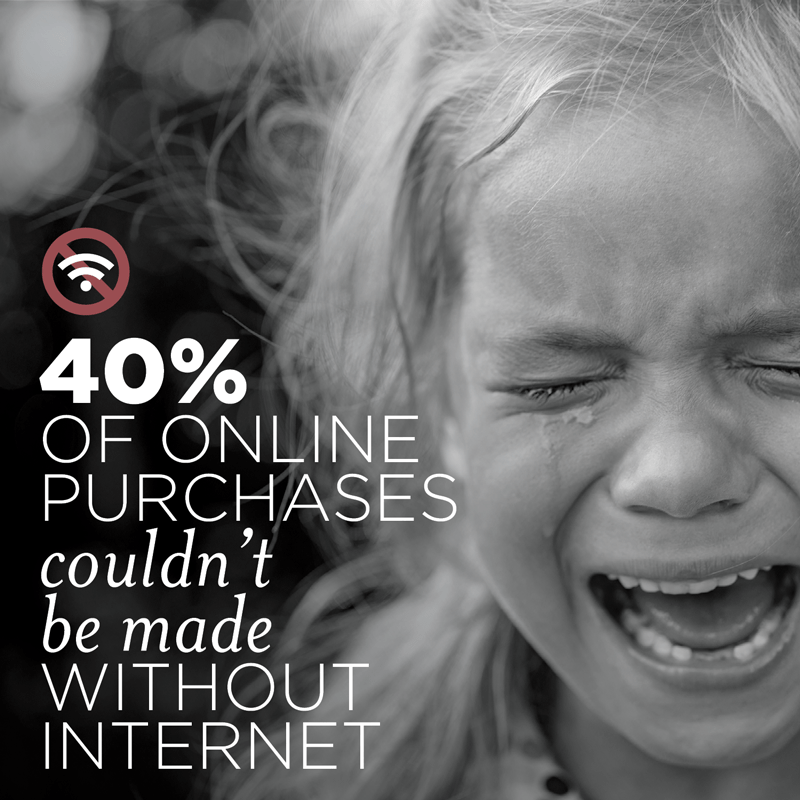Digital technology and the economy of your business

Does your business have a website? It should. Between computers, smart devices, and social networks, people are online more frequently than ever, and having a website is a vital and expected connection between your company and your consumers.
But it isn’t as simple as establishing the page and walking away. Digital technologies are changing the ways that customers interact with businesses, and also how businesses organise themselves. Digital technologies are an important source of productivity, and have the potential to increase competitive value, improve business efficiency, drive sales of products and service, and save money. The digital economy is growing in significance; in 2013-14, it contributed $79 billion to GDP, and predictions state this could increase to a worth of $139 billion by 2020.
Digital technology is transforming the Australian economy. Is your business prepared to take advantage of these changes?
What is the digital economy?

The digital economy refers to a global economy based on digital, online, and communications technology. This encompasses the role of digital technologies — the internet, social networks, online marketing and so forth — in business. Digital technologies are increasingly impacting upon the ways we, as individuals and as a society, communicate and conduct business.
So what precisely can digital technologies do for your company?
Online contribution to economy
Digital technologies are undeniably playing an important role in Australia’s economy. The internet is becoming increasingly integrated within business marketing. It is constantly evolving and thus is no longer a service used by some, but rather a presence used by nearly everyone in nearly all places.
Overall, the internet and digital technologies contribute anything between $45 and $92 billion to the Australian economy per year, and this number is on the rise.
The reason for this lies with the benefits that online technologies offer to consumers. The internet allows people to access products and services that are not locally available. Studies have shown that approximately 40% of consumers’ online purchases could not be made without the internet, and these purchases have a value of $9.5 billion in the economy.
Moreover, potential customers use digital technologies to quickly and easily search for information. The value of online searching is estimated at over $7 billion as a result of specialised search facilities directing people to find homes, careers, cars, and the best prices for products and services.
Online technologies impact upon economic activities with both short- and long-term results. Have you ensured that your business is ready to benefit from the digital economy?

Transforming your business’s productivity
The greatest businesses in Australia are constantly evolving and responding to new internet trends and technologies. Digital technologies are a central factor in the dealings and identity of all successful businesses, as they have a clear potential to support transformation, growth and productivity.
Productivity is the measure of how effectively input is transformed into output — how successfully a company satisfies customer demand. An online presence means that consumers are able to communicate demand to your business anywhere and at any time. As such, it is necessary for businesses to undergo a digital transformation in order to respond to and benefit from these changes.
More people are making use of online services than ever before. Over the past five years, the number of customers who pay bills online has increased by more than 10%; there has also been a 20% rise in the number of consumers who access a range of business and government services.
Maintaining effective digital technologies can allow your customers to obtain information, remain current with your business, and make valuable and timely purchases.
Having the right digital technology is a must for businesses’ survival. When businesses draw on people’s willingness to use online services, they have the potential to reach a much wider audience and to perform their services more productively.
Digital technology and employment
Digital technologies are creating new employment opportunities, transforming the ways that old jobs are undertaken, and influencing how businesses conduct their services.
The digital economy and its impact upon employment can be observed in two ways. The first is through measuring how many jobs exist within the field of online technologies. E-commerce, IT software, website design, advertising, data processing — digital jobs encompass many related roles, with approximately 200,000 Australians filling them.
However, employees outside of these careers are also benefiting from digital technology in the workplace.
Research has found that employees with access to online technologies are generally happier, more satisfied, and more engaged with their jobs; 9% of employees without flexible technology services intend to leave their role within twelve months, compared to only 6% of employees with ready access to technology. Moreover, 83% of employees who worked for businesses with active digital technologies reported high levels of job satisfaction, while only 62% of workers said the same when they lacked online services.
Essentially, the digital economy creates jobs for many Australian workers, but also has a positive impact on all employees, increasing productivity, vindication, and retention in the workplace.

The future of the digital economy
So where does the future of digital technology lie?
The internet and online technologies are playing a significant and expanding role in the Australian economy. This can only continue in the coming years; broadband speeds are becoming faster, connections are becoming readily available in public and private locations, technologies such as smart devices, social media platforms, and websites are improving, and businesses are becoming increasingly aware of the need to grow and develop alongside the digital economy.
Technological developments appear at a rapid and constant pace, supplying potential for growth, but also creating new challenges. Creativity, innovations and digital collaboration are critical for business success. Creating a website isn’t the end; it is the first of many steps into the digital enabled economy.
The future is coming — is your business ready?